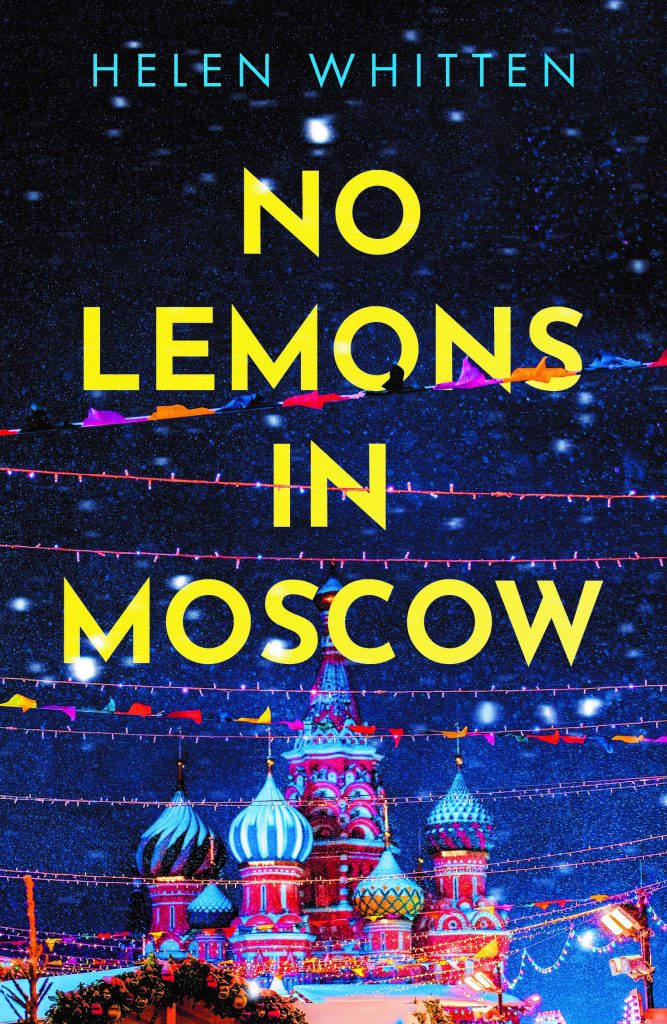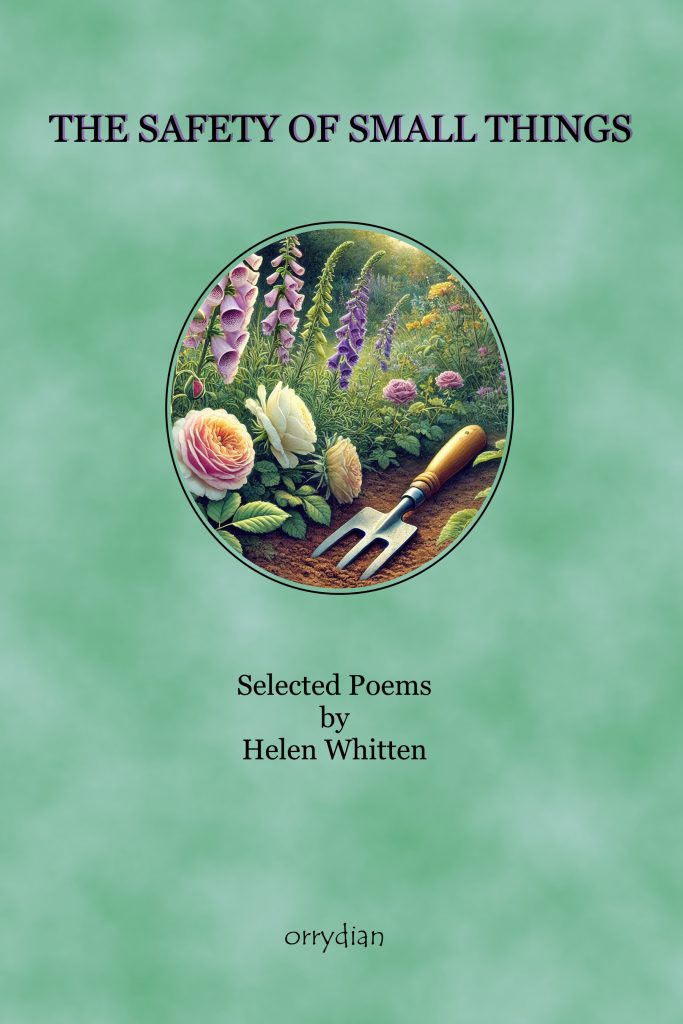
“An insightful and exciting read: Helen Whitten’s new novel set in Moscow is a great read. She skilfully evokes the atmosphere of the times and her story of love and intrigue is a real page turner.” Amazon reader 5*
It’s a year now since No Lemons in Moscow was published (and still not too late to buy it for a Christmas present!) It is so lovely to get 4 and 5* reviews on Amazon and know I have given some people a few pleasurable hours of reading.
Writing a novel is a solitary business. One has to take time to be in the heads and hearts and intentions of one’s characters, think about who they are, how they came to be that person, what their intentions and responses might be. What an interesting, and somewhat frightening, experience it is, then, to unleash these characters and their story out into the public sphere. Although I had written several non-fiction books related to my career as a business coach, publishing my novel No Lemons in Moscow was so much more of a personal experience: it contains a part of me, my emotions, perceptions and my understanding of people and life. Here I’m describing characters who are often a mishmash of people I have actually met, and some fictional ones I am glad I never shall meet!
On publication one hopes that the reader will understand who each character is, and why they do the things they do. I didn’t want to make my main protagonist, Kate, into some perfect creature who got everything right. I wanted her to be vulnerable, to be a woman who is understood for having come out of a bad marriage, whose father died just as she was becoming a woman, whose mother fell to pieces afterwards and became an alcoholic. A woman who also lost a baby son and wants to create a charity in his memory. All these events shape a person and can chip away at confidence, so when a handsome young Russian pays her a great deal of attention she is inevitably flattered, and then also sold into his dream of exposing corruption in the Russian system, as infrastructure is sold off to the oligarchs. What a cause. What an adventure. He’s her Navalny.
Some people found her infatuation with Valentin difficult to grasp – “she’s 35 years old, she’s a grown up, she wouldn’t fall for someone in that way” but age doesn’t always blunt these feelings, nor make one as wise as one might wish to be! Look at Robert Harris’ recent excellent book, Precipice, detailing the extraordinary obsession Prime Minister Asquith had in his sixties with the very young Venetia Stanley. But it is a never-ending challenge for the writer to convince the reader and so one is continuously honing the craft to better express the twists and turns of emotions, relationships and life.
There is also the practical and emotional side of getting the job done, sitting down at one’s desk even when one’s mind does not have a clue what will come next. It’s a combination of motivation, some self-discipline and quite a lot of determination to overcome the self-doubt that can drive one into distractions like checking emails, loading the dishwasher, or, worse, writing block.
No Lemons in Moscow is set partly in the post-Soviet era of Russia, from Gorbachev to Putin, and partly in London during its “Londongrad” period. Alongside the knowledge I gained from my two trips to Russia, I had to spend hours in research, reading as many books and documents as possible to give the nitty-gritty detail of what life might be like in the places I set the novel. My cupboard is still packed with papers, books, newspaper cuttings, pages of plot plans, mind maps of chapters, timelines, arcs of characters. Perhaps I shall have a large bonfire of it all one day, but not just yet.
In writing one has to convince oneself, over and over, that it is worth making a start, writing the first few pages. I am not alone – and I am sure many of you who read this are also writers – in working a sentence in a multitude of different ways to try to convey what I mean. Then waking in the middle of the night to think of a better way of expressing this, or realizing one needs to rework the whole of a section in order to make it more dramatic. Then one has to convince oneself, over and over, that it is worth carrying on. But what surprised me was that I discovered I did have the patience to do this and even enjoyed the endless editing… and editing some more. Unlike non-fiction, where one can more-or-less gauge whether one is writing rubbish or not, writing fiction is something one will only know has met its mark when one gets reader feedback. So, the Amazon and other reviews are invaluable to me.
The whole episode has also been an eye-opener back into the publishing world I left many years ago. The teaching of creative writing has become quite an industry now. People promise to teach you the perfect formula for writing a bestseller, how to write the perfect synopsis, the perfect pitch letter to an agent that will guarantee your book gets taken up, the perfect template for the ‘cosy murder mystery’ (it does seem a bit strange to me that murder should have ended up being branded ‘cosy’ – but there we are, and people love them!).
Then there are the publishers and booksellers who want you to define your book within an exact genre and woe betide you if your book straddles a few and can’t exactly fit. My publishers plumped for No Lemons in Moscow being defined as ‘literary fiction’. Yet when I look at my bookshelves full of books I read through the 1960s-2000, genre was less of an issue and many of the best books definitely could not be pigeon-holed.
Nonetheless, I very much appreciate what I have learnt from my creative writing tutors and editors. I have picked up a great deal and am indebted to them – especially the one who pointed out that someone couldn’t possibly attempt to escape kidnap by bashing open the door in front of him if he had his hands tied behind his back. Quick rewrite! At the same time, I think many of us writers are concerned not to end up with some formulaic result. The reason we write is because something inside us is pressing to be said. There have been endless thrillers, spy stories, love stories written century after century and yet each one is unique in its way, each one introduces the reader to new characters, new ideas, new events or relationships. Each one expands your mind and imagination just a tad. As the writer George R R Martin said, “a reader lives a thousand lives where someone who doesn’t read only lives one.”
It has indeed been heart-warming to receive some lovely feedback from people who have enjoyed No Lemons. Even if one person has received pleasure from reading it, that makes it worthwhile as it had to be written. It couldn’t stay inside me. So having many nice comments and 4* and 5* ratings has made me feel the effort was worthwhile.
As an aside, and as it’s Christmas, I will mention that I’ve also recently published a new collection of poetry, The Safety of Small Things, which is contemporary poetry and could just be an excellent stocking-filler for a loved one! I find I have to get into another mindset to write poetry – more of a dream state, observing what is around me. Anyway, I hope you enjoy them.
All available on Amazon, of course, or No Lemons in Moscow can be ordered from your local bookshop, so do support them if you can.
Happy Christmas and Festive Season to you all and thank you for your support, Helen


Recent Comments